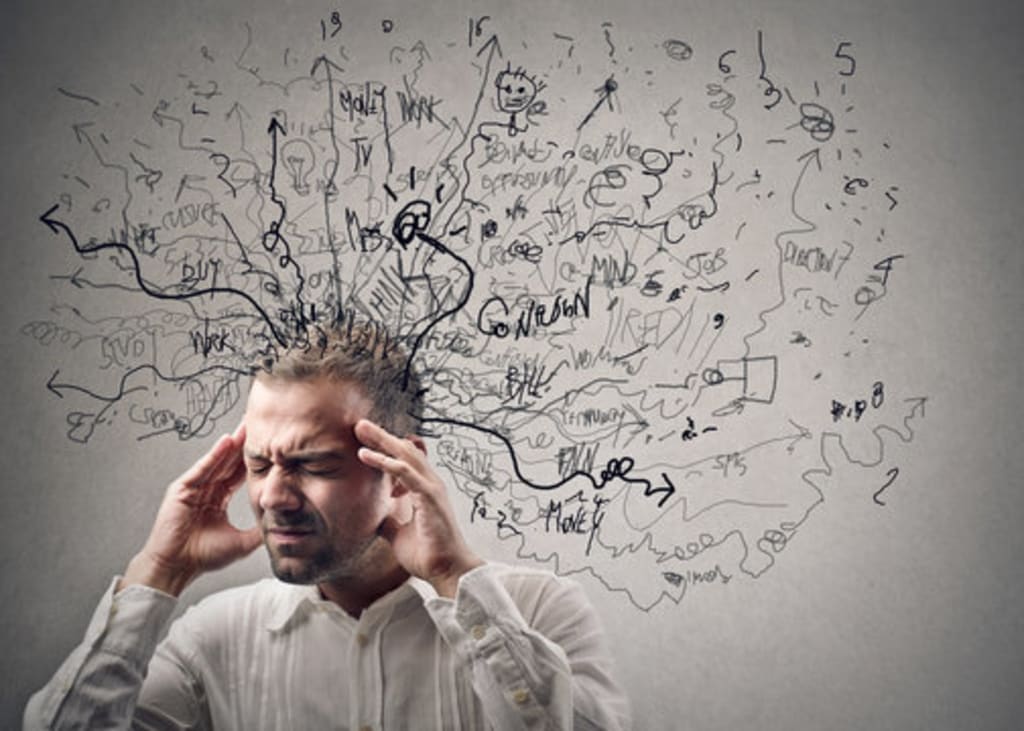Mental Resilience: Getting through an emotional storm
Getting through an emotional storm

The human psyche is a complex and interesting structure that allows us to adapt to different situations and experiences throughout our lives. However, there are times when this system becomes overwhelmed due to excessive stress or traumatic experiences. In such cases, the human psyche develops defense mechanisms that can range from emotional detachment to severe manifestations of mental disorders. In this documentary, we will look at how our body and psyche react to such situations and how this reaction can manifest.
Section 1: Emotional detachment
One common way the human psyche reacts to too much stress is emotional detachment. This defense mechanism involves distancing oneself from one's own emotions and experiences in order to reduce their negative impact on the individual. In this sense, our body can protect us with:
Apathy: Apathy is a state of indifference or lack of interest in events around us. It can occur when a person has been exposed to excessive stress or trauma, and the brain tries to reduce the impact of these events by suppressing emotions.
Derealization: Derealization is the feeling that the world around you is alien or unreal. People experiencing this condition may feel that everything around them seems like a dream or that their surroundings have changed drastically.
Depersonalization: Depersonalization involves feeling disconnected from oneself or one's body. It is as if the person is looking at their life from the outside or feels that they are no longer connected to their own body.
Section 2: Extreme reactions and mental disorders
In some extreme cases, mental defenses can go further and lead to serious mental disorders. These include:
Delusions: Delusions are perceptual distortions that can lead to misinterpretations of reality. For example, a person may see or hear things that do not actually exist. This reaction may be caused by the brain trying to cope with reality in a more acceptable way.
Hallucinations: Hallucinations are perceptions that have no basis in reality. They can be visual, auditory, or sensory. In extreme cases, hallucinations can create entirely new worlds and experiences for the person, deepening their detachment from ordinary reality.
Schizophrenia: Schizophrenia is a complex mental disorder that can be triggered or exacerbated by excessive stress and trauma. It is manifested by symptoms such as disorganized thinking, hallucinations, incoherent speech, and personality changes. Schizophrenia is often associated with a severe disconnection from reality.
Section 3: How to manage mental health reactions to stress and trauma
It is important to realize that these mental reactions to stress and trauma are the brain's natural defense mechanisms. However, they can become a serious problem if they persist for long periods of time or interfere with a person's ability to function in daily life.
There are many ways to cope with these reactions, including psychological therapy, medication, and support from family and friends. Stress management techniques such as meditation and regular exercise can also help maintain mental health.
Mental reactions to stress and trauma reflect the complexity of the human psyche in the face of difficult experiences. Defence mechanisms such as emotional detachment, apathy and depersonalization provide temporary refuge from overwhelming situations. However, in extreme cases, these mechanisms can develop into serious mental disorders such as delusions, hallucinations, and schizophrenia.
It is important to recognize that these reactions are natural, but also that they may require intervention to prevent long-term complications. Psychological therapy, social support, and stress management techniques are valuable tools for restoring and maintaining mental health.
Finally, knowledge about these reactions and how to manage them is necessary to ensure the mental well-being of people exposed to significant trauma and stress. Education and community support can play a critical role in helping people facing such experiences regain control of their lives and regain a state of balance and mental health.





Comments
There are no comments for this story
Be the first to respond and start the conversation.